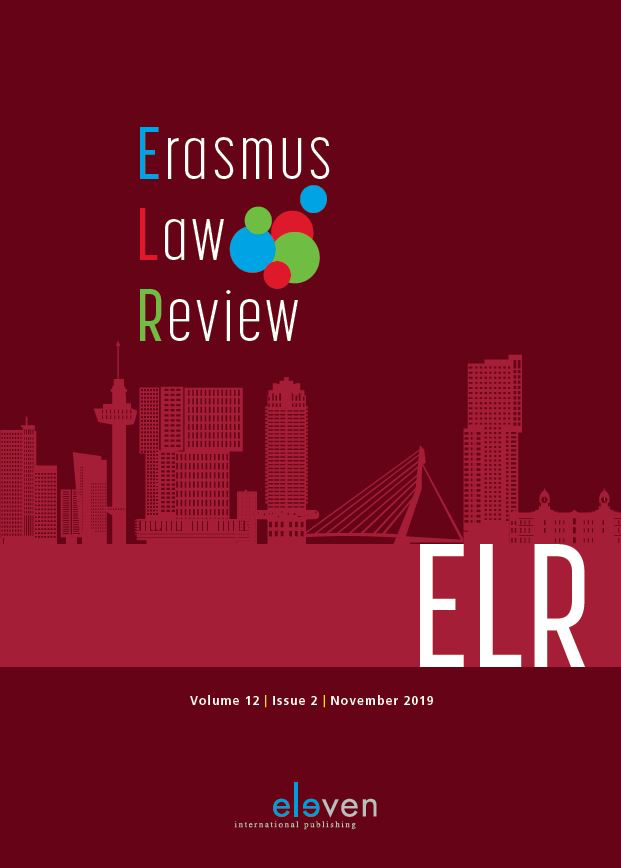|
Computational analysis can be seen as the most recent innovation in the field of Empirical Legal Studies (ELS). It concerns the use of computer science and big data tools to collect, analyse and understand the large and unstructured data, such as for instance (legal) text. Given that the text is now the object of analysis, but the methods are (largely) quantitative, it lies in the intersection between doctrinal analysis and ELS. It brings with it not only a great potential to scale up research and answer old research questions, but also to reveal uncovered patterns and address new questions. Despite a slowly growing number of legal scholars who are already applying such methods, it is underutilised in the field of law. Furthermore, given that this method comes from social and computer sciences, many legal scholars are not even aware of its existence and potential. Therefore, the purpose of this special issue is not only to introduce these methods to lawyers and discuss possibilities of their application, but also to pay special attention to the challenges, with a specific emphasis on the ethical issues arising from using ‘big data’ and the challenge of building capacity to use such methods in law schools. This editorial briefly explains some of the methods which belong to the new movement of Computational Legal Analysis and provides examples of their application. It then introduces those articles included in this special issue. Finally, it provides a personal note on the way forward for lawyers within the movement of Computational Legal Analysis |


Erasmus Law Review
About this journalSubscribe to the email alerts for this journal here to receive notifications when a new issue is at your disposal.
| Editorial |
|
| Keywords | computational legal analysis, empirical legal studies, natural language processing, machine learning |
| Authors | Elena Kantorowicz-Reznichenko |
| AbstractAuthor's information |
| Article |
|
| Keywords | text mining, machine learning, law, natural language processing |
| Authors | Arthur Dyevre |
| AbstractAuthor's information |
|
Many questions facing legal scholars and practitioners can be answered only by analysing and interrogating large collections of legal documents: statutes, treaties, judicial decisions and law review articles. I survey a range of novel techniques in machine learning and natural language processing – including topic modelling, word embeddings and transfer learning – that can be applied to the large-scale investigation of legal texts |
| Article |
|
| Keywords | big data, big data analysis, data life cycle, ethics, AI |
| Authors | Simon Vydra, Andrei Poama, Sarah Giest e.a. |
| AbstractAuthor's information |
|
The adoption of big data analysis in the legal domain is a recent but growing trend that highlights ethical concerns not just with big data analysis, as such, but also with its deployment in the legal domain. This article systematically analyses five big data use cases from the legal domain utilising a pluralistic and pragmatic mode of ethical reasoning. In each case we analyse what happens with data from its creation to its eventual archival or deletion, for which we utilise the concept of ‘data life cycle’. Despite the exploratory nature of this article and some limitations of our approach, the systematic summary we deliver depicts the five cases in detail, reinforces the idea that ethically significant issues exist across the entire big data life cycle, and facilitates understanding of how various ethical considerations interact with one another throughout the big data life cycle. Furthermore, owing to its pragmatic and pluralist nature, the approach is potentially useful for practitioners aiming to interrogate big data use cases. |
| Article |
|
| Keywords | legal education, law and technology, legal analytics, technology education, technological literacy |
| Authors | Mikołaj Barczentewicz |
| AbstractAuthor's information |
|
The article offers a reflection on how applications of computer technology (including data analytics) are and may be taught to (future) lawyers and what are the benefits and limitations of the different approaches. There is a growing sense among legal professionals and law teachers that the technological changes in the practice of law are likely to promote the kind of knowledge and skills that law graduates often do not possess today. Teaching computer technology can be done in various ways and at various depths, and those different ways and levels have different cost and benefit considerations. The article discusses four models of teaching technology: (1) teaching basic technological literacy, (2) more advanced but general technology teaching, (3) teaching computer programming and quantitative methods and (4) teaching a particular aspect of technology – other than programming (e.g. cybersecurity). I suggest that there are strong reasons for all current and future lawyers to acquire proficiency in effective uses of office and legal research software and standard means of online communication and basic cybersecurity. This can be combined with teaching of numerical and informational literacy. I also claim that advanced technology topics, like computer programming, should be taught only to the extent that this is justified by the direct need for such skills and knowledge in students’ future careers, which I predict to be true for only a minority of current lawyers and law students. |

 Issue 4
Issue 4